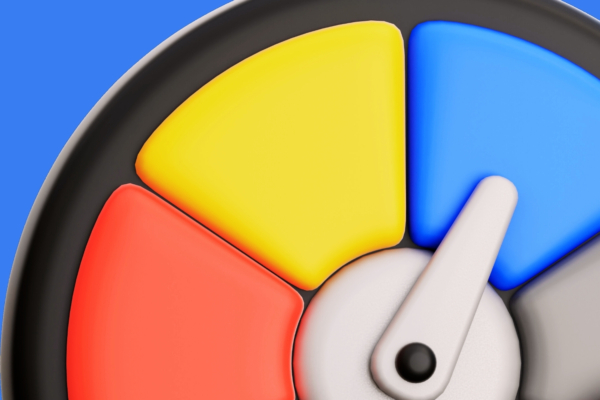
Budgeting Strategies: How to Budget with a Smile

Budgeting is at the foundation of every financial plan. No matter how much money you have, or what your financial goals are, making a budget is crucial. To many people, budgeting seems to be daunting, all about restrictions and what you can’t do. But budgeting is really all about understanding how much money you have, making it work for you, and gaining freedom to make solid financial decisions. When done right, budgeting can give you peace of mind and more confidence in managing your finances. Read on for some budgeting strategies that aren’t a major pain.
Simple Steps Toward Budgeting
When it comes down to it, budgeting is all about organizing your personal finances in a way that helps you reach your financial goals. There are several different types of budgeting strategies, but here’s where almost all budgets start. Grab a piece of paper or a computer, and let’s get started!
List monthly income
If your income is in the form of a regular paycheck where taxes are automatically deducted, you can use your net income or take-home-pay amount. If you are self-employed, or if you have additional sources of income, such as child support or social security, you should include these as well.
List fixed expenses
With fixed monthly expenses, you pay the same amount each month. Expenses that fall into this category include rent or mortgage payments and insurance, student loans, car loans and insurance, and personal loans. You may also have some credit card debt that you’re paying the minimum on. These expenses are the easiest to track.
List variable expenses
Variable expenses fluctuate from month to month. Some bills, like heating and cooling, can change from month to month if you live in a seasonal climate. Other variable expenses include gas, groceries, personal hygiene products, and household items. In order to get an idea of what you spend on variable expenses on average, track your spending over a few months in these categories. Decide on a number that can cover these expenses most of the time.
Compare monthly income and expenses
If your income is higher than your expenses, you’re off to a good start. You can put this extra money towards your financial goals, like buying a home or paying off debt. If your expenses are more than your income, you’re overspending and will need to cut back expenses.
Common Budgeting Strategies
Budgeting is all about balancing expenses and maximizing savings. Not everyone can afford to save, but everyone can benefit from looking at their expenses. Here are two of the most popular budgeting strategies.
50/30/20 Budget
This is one of the easiest budgets to stick to. With this approach, 50% of your income goes to needs like rent, food, utilities, and minimum payments on loans. 30% goes to wants like shopping, subscriptions, or entertainment. 20% goes to your savings account. Start with these percentages, and if you need to adjust—adjust! This is just a guideline, and it can be changed to work for you.
Zero-based budget
This approach involves making income minus expenses equal to zero. In other words, all of your income is put to use somewhere! Each dollar is assigned a “job”—a specific amount goes to savings, and other amounts are assigned to different categories. You can repeat these categories every month or switch it up depending on what you need. This budget is recommended for beginners, or for those in debt. For instance, if you are under budget in a certain category, this method would use the excess to start building an emergency fund. After your emergency fund is established, you would funnel any excess money toward paying off debt. The key concept here: every dollar needs to be put to work for you.
Get Your Financial Goals in Line
Budget helps you work towards reaching your financial goals. But in order to reach them—you have to have them first! Here are some common goals that people set when budgeting.
Paying Off Credit Card Debt
Credit cards are one of the easiest ways to rack up debt. When you carry a balance month-to-month, you can end up paying a lot in interest. It’s important to monitor your credit spending closely and always make at least the minimum payments on time. If you can, go above and beyond minimum payments to pay down the debt faster. Balance transfers may also be useful, if you can transfer debt to a card with a 0% introductory APR. Be careful with this method; you don’t want to end up with the same debt at the end of the introductory period.
Paying Off Student Loans
Many people take on student loans to pay for their education, and although they tend to have better interest rates than other types of loans, they will probably be a part of your budget for a long time. You probably have a few different loans from different lenders, so be sure to note the interest rates of each and try to pay down the loans with the higher interest rates first to minimize overall interest paid. Consider refinancing high-interest loan and if you have the room in your budget, pay more than the minimum monthly payment.
Paying Off Auto Loans
Before you purchase a car, you must determine what your monthly payment will be and if it fits into your overall budget. Shop around to compare auto loan rates and get the best deal. And be sure to show up at the car dealership knowing exactly how much you are willing to spend and what you can afford as your monthly payment. Car salesmen are just that–salesmen–and may try to sway you into more expensive options.
If you’re working off some other debt and you don’t need a new car, consider sticking with your current vehicle until you can pay off debt. By minimizing new debt, you’re maximizing your ability to save and pay off existing debt.
Housing: Renting or Home Ownership
Your housing cost will be the largest chunk of your budget, so it is important to put a lot of thought into your choices in this area.
- Renting an apartment or house? If you can find a cheaper place to rent, it might be worth it! If this cheaper place is further from your job, make sure to consider things like commuting costs and time management against potential savings.
- Saving up for a home? Setting a specific amount aside each month is a great way to move toward your goal. Look over your budget and estimate how much house you can afford, so you can save the right amount. You might also cut expenses that you can live without. Remember to be reasonable—the best budget is the budget you can stick to over the long term.
- Already have a mortgage? Consider refinancing to get better interest rates and cut down the total that you’ll pay back over the lifetime of the loan.
Take that First Step Toward a Budget
Budgeting can seem intimidating, but a little bit of effort goes a long way towards helping you reach important financial goals. Budgeting is for everyone! You may not make enough money to save right now, but taking the time to understand where your money is going and working to reduce expenses can greatly benefit you in the long run.
Become a Member Today
Join one of Austin’s fastest-growing credit unions and take advantage of our award-winning financial products and services!

